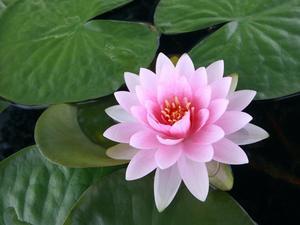24526051
Structure & Functions of the Plant & Animal Cells
Description
Quiz by kalshini dulmitha, updated more than 1 year ago
More
Less

|
Created by kalshini dulmitha
almost 4 years ago
|
|
Resource summary
Question 1
Question
In 1665 [blank_start]Robert Hooke[blank_end] observed a section of a cork using a primary microscope. That was when he discovered the smallest biological unit of life 'cells'
Answer
-
Robert Hooke
-
Radolf Virchow
-
Robert Remak
Question 2
Question
Radolf Virchow is credited for the third part of the modern cell concept.
Answer
- True
- False
Question 3
Question
Select the correct statements about the animal cell out of the following:
Answer
-
A strong cell wall is present.
-
Chloroplast is absent.
-
Few small vacuoles may be present.
-
Unlike in plant cells, lysosomes can be observed.
Question 4
Question
Interior to the plasma membrane is the cell wall in plant cells.
Answer
- True
- False
Question 5
Question
The cell wall is a living structure.
Answer
- True
- False
Question 6
Question
What are the main constituents of the plasma membrane?
Answer
-
Phospholipids
-
Carbohydrates
-
Proteins
-
Cellulose
Question 7
Question
During cell division, chromatin is converted into chromosomes.
Answer
- True
- False
Question 8
Question
The main function of the nucleus is [blank_start]control of the cellular activities[blank_end].
Answer
-
control of the cellular activities
-
Production of the ribosome subunits
Question 9
Question
Humans have 26 pairs of chromosomes.
Answer
- True
- False
Question 10
Question
Chloroplast is called the 'power house of the cell'.
Answer
- True
- False
Question 11
Question
What are the functions of the golgi complex?
Answer
-
Production of secretary substances.
-
Protein synthesis.
-
Packaging
-
Secretion
Question 12
Question
Ribosomes are membrane bound organelles which provide place for protein synthesis.
Answer
- True
- False
Question 13
Question
There are two main parts in the Endoplasmic Reticulum (ER). They are;
1. Rough Endoplasmic Reticulum
2. Soft Endoplasmic Reticulum
Answer
- True
- False
Question 14
Question
The membrane surrounding the vacuole is called the [blank_start]tonoplast[blank_end].
Answer
-
tonoplast
Question 15
Question
Unicellular organisms have contractile vacuoles filled with cell sap.
Answer
- True
- False
Question 16
Question
Plant cell growth has no limit.
Answer
- True
- False
Question 17
Question
During cell division, first the [blank_start]nucleus[blank_end] divides and then, the cytoplasm follows.
Answer
-
nucleus
-
chromosomes
Question 18
Question
Meiosis is significant for the growth of multicellular organisms.
Answer
- True
- False
Question 19
Question
Select the correct statements about meiosis from the following.
Answer
-
Help in evolution
-
An asexual reproduction method
-
Only shows in diploid cells
-
Daughter cells receive half the # of chromosomes as the mother cell.
-
Two divisions take place during the process
Question 20
Question
In humans and so-like animals, zygote produced by the fusion of the two gametes which are produced from meiosis grows into a multicellular organism by undergoing the process of mitosis.
Answer
- True
- False
Want to create your own Quizzes for free with GoConqr? Learn more.
